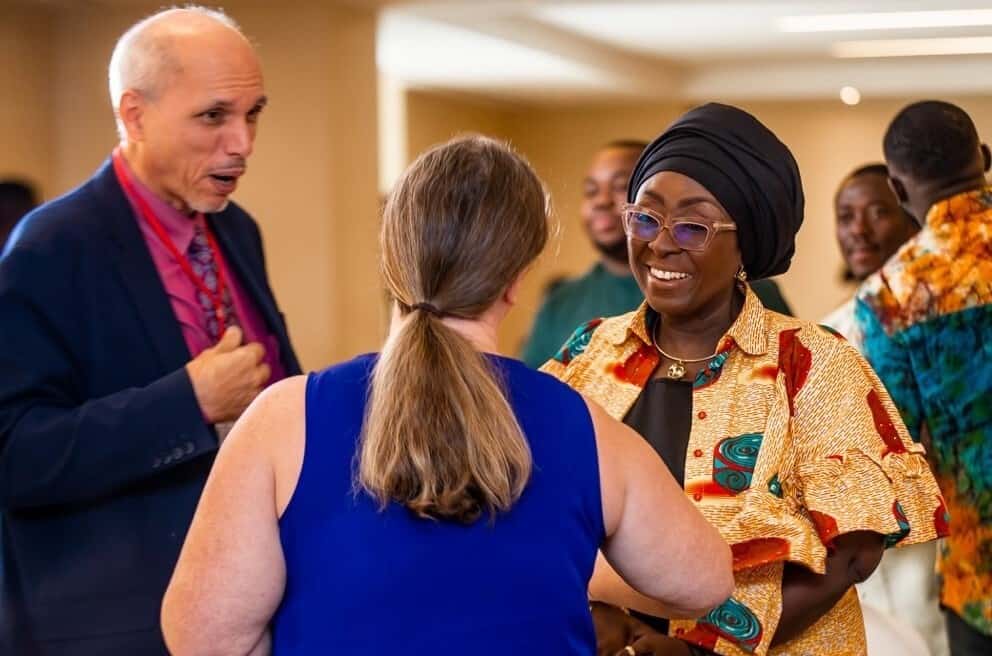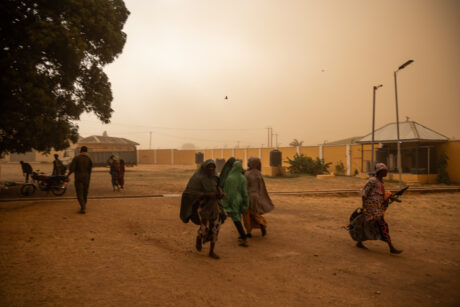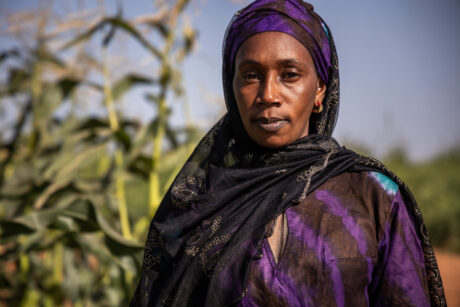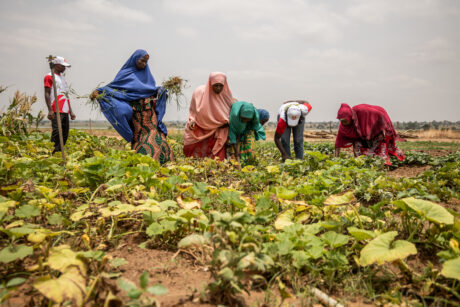A USAID-funded project that uses public funds as a catalyst for greater private-sector investment has succeeded in stimulating economic growth in Ghana and throughout West Africa while bolstering food security.
Grants through the USAID West Africa Trade & Investment Hub have spurred five times their amount in private investment, organizers told an audience of investors and officials at an event in Accra summarizing project results to date.

In Ghana, the Trade Hub has awarded $8.5 million in co-investment grants to nine private sector companies, catalyzing $43.7 million in new private investments, organizers said. Those projects generated $17.9 million in sales and $96.1 million in exports—$87.5 million of it to the United States through trade preferences under the African Growth and Opportunities Act (AGOA). Those public-private partnerships have created 20,647 jobs in Ghana, of which some 17,500 are held by women and more than 8,000 held by youth.
“Since project inception, the Trade Hub has exemplified the power of partnership, innovation and strategic investment,” Andrew Read, USAID/Ghana Economic Growth Office Director, told attendees at the event on Feb. 28, 2024. “It has driven significant progress across key sectors, including agriculture, apparel and personal care.”
Since its launch in 2019, the Trade Hub has awarded $83 million in co-investment grants to 92 private-sector companies in West Africa, enabling $408 million in private-sector spending which drove new revenue and job creation.
Trade Hub Chief of Party Robin Wheeler explained that this public-private partnership has been transformative for Ghana and the rest of the program’s target countries.
“Through these locally driven co-investment projects, the Trade Hub and our partners have generated almost $611 million in sales and over $203 million in exports, with almost $110 million being exported to the U.S.,” Wheeler said at the event. “Regarding the workforce, we have added over 74,000 jobs to the West African economy, with more than half being held by women.”
The event in Ghana gathered more than 60 participants, including business owners who described how the co-investment grants had mitigated their risks and enabled them to grow. They were joined by investors, USAID officials, and representatives of Ghana’s Parliament, Ministry of Finance, Investment Promotion Center, and Export Promotion Authority.

Panel discussions and exhibits provided examples of the economic projects’ impact on people’s lives. Entrepreneurs from AMAATI Company Limited, Nuts for Growth, and Warc shared the unique practices and innovations that have improved their supply chains in fonio, shea, soy and maize while increasing smallholders’ productivity and profits. Other speakers discussed their achievements and strategies in implementing their co-investment projects despite complex challenges such as global inflation, supply chain disruptions, and the economic effects of COVID-19.
Strengthening the national and regional economy supports the urgent mission of preparing Ghana’s food system to meet the needs of a growing population amid the rising threat of drought, speakers noted. Jacob Gyamfi-Aidoo of Ghana’s National Coordination Office for the African Continental Free Trade Area thanked the Trade Hub for highlighting food security.
“Addressing malnutrition and hunger are not just humanitarian efforts,” said Gyamfi-Aidoo, Senior Advisor for Stakeholder Engagement and Capacity Building. “It is an investment in international peace and security, safeguarding the well–being of nations.” Gyamfi-Aidoo said increased trade will lead to exchanges of knowledge, “contributing to diversified food sources and a more resilient food system.”
Gyamfi-Aidoo said his office is committed to collaborating with the Trade Hub project to work towards ensuring food security in the region. “We together hope that we will forge a path towards a more secure, prosperous and interconnected future for Africa,” he added.
The Trade Hub is also strengthening food security by encouraging its private-sector partners to adopt climate change-adaptive methods, USAID/Ghana’s Read noted.
“The Trade Hub’s efforts in promoting climate-smart and biodiversity-related activities highlight USAID’s commitment to environmental sustainability,” Read said. “From promoting regenerative agricultural production of cereals, which enhance soil health, to reducing the carbon dioxide emissions produced by the shea butter sector through improved processing facilities, we are not only contributing to the global fight against climate change but also ensuring the sustainability of agriculture-led economic growth in Ghana.”

Kevin McGlothlin, Director of the Regional Economic Growth Office at USAID/West Africa, encouraged business leaders to adapt to changing conditions and aspire to resilience. McGlothlin emphasized that public-private partnerships will be crucial for the region’s growth to continue.
“While the numbers are impressive and tell an important story, we also celebrate the tangible illustrations of improved livelihoods and empowered communities across Ghana,” Wheeler said. “As this model plays out throughout West Africa, it will […] contribute to broad-based and inclusive economic growth and resilience in the region, while also transforming the lives of countless people for the better.”



